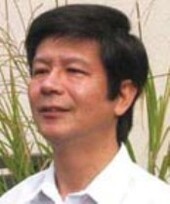Yoichiro Suzuki
|
 |
My research interests are neutrino mass, dark matter and proton decay. Over the next few years I will particularly look for dark matter using a liquid xenon detector.
Our knowledge of the Universe has increased tremendously in the last decade and we now know that more than 95% of its substances are made of so-called dark energy and dark matter, though we do not know what they really are. The main subjects of the experimental groups of IPMU are to study dark energy and dark matter.
Although the neutrino mass shares only a tiny fraction of the substances of the Universe, the smallness of their masses, together with proton decay -another subject at IPMU- could provide clues to a unified theory of elementary particles, which would be an ultimate tool for studying the early Universe.
We will pursue those studies with the collaboration of the existing observatories. The study of dark energy will collaborate with the Subaru telescope. At the Kamioka Satellite of IPMU we will collaborate with Kamioka Observatory, the Institute for Cosmic Ray Research, the University of Tokyo and the Neutrino Science Center of Tohoku University, and then aim to make a significant jump in the area of observational particle experiments. IPMU is designed not only to provide common bases for the experiment, but also to bring scientists together. I hope that IPMU will provide a good environment to get experimentalists and theorists together and hold fruitful discussions.
I will move to Kamioka after April and concentrate on research. The study of neutrino mass will enter a new era in a next few years with the T2K experiment, the second phase long baseline neutrino oscillation experiment from Tokai to Kamioka. Another immediate interest is to look for dark matter through direct interactions. The construction of the liquid xenon detector, which has the best sensitivity in the world, has already started and I expect that we will obtain new results to unveil dark matter in 5 years. I hope that we can also make a significant step forward to designing a realistic next generation proton decay and neutrino detector while we are conducting the above experiments.
This institute is established independent from any other department at the University. We must work our way up from the bottom. We need to establish a suitable personnel selection system, a world competitive salary system and a management organization to match the leadership of the director. These are difficult tasks, but worth doing.
Back to Member List.






